 Water, water, water. So has read the garden duty roster over the past few rainless weeks, thereby countermanding one of the core tenets of my gardening philosophy. Water is a cherished and finite resource on this green planet, and a guiding belief in building a garden has been that its plant life shall be capable of becoming, upon maturity, largely self-sufficient, self-propagating. A garden should co-exist harmoniously with nature rather than combating it, harming or depleting it. Yes, well – chance would be a fine thing!
Water, water, water. So has read the garden duty roster over the past few rainless weeks, thereby countermanding one of the core tenets of my gardening philosophy. Water is a cherished and finite resource on this green planet, and a guiding belief in building a garden has been that its plant life shall be capable of becoming, upon maturity, largely self-sufficient, self-propagating. A garden should co-exist harmoniously with nature rather than combating it, harming or depleting it. Yes, well – chance would be a fine thing! The reality, of course, is that aside from maybe a prairie wildflower meadow or a desert cacti bed, there's no such creature as the autonomously thriving, no-maintenance garden. Whether it be taking measures to fend off omnivorous deer, rabbits, aphids and other critters who view the garden as their personal banquet hall; or schlepping and shoveling mulch, compost and other soil-enriching and protective materials; or broadcasting runnels of fresh water up and down the garden when clear skies rule the heavens for days on end; or any of the score of other cossetting, supportive, laborious chores that perforce must be completed – a healthy, lively garden can be sustained only with the continual attention of and intervention by the gardener.
All the 25 shrubs and 11 trees planted over the years in my garden are native to Michigan, supposed to be well-suited to growing robustly in the particular kind of environment on offer here. They also number among the more feisty, hardy contenders of the plant world, rather than hailing from the squads of the fragile and easily perishable. The lilac, forsythia, American high bush cranberry, red maple and oak, aspen and river birch, and the other species are, indeed, often found growing old and going strong in deserted farmyards and untended forest land throughout the state.
While I celebrate whatever happy circumstance of micro-ecosystem maintains such wilderness dwellers, the fact remains that none of the trees or shrubs in my garden came here by choice or natural selection of just the very spot where they could flourish into a ripe old age. All were brought to their garden location by my hand, all are still in the childhood of their possible lifespans. And although it contravenes my desire and intention, goes against the grain of how I believe one should garden in the best of all possible worlds, these youngsters need watering when it doesn't rain.
I feel responsible to and for the trees and shrubs in the garden. To leave them to their own resources come hail or high water, after purposefully adopting them and bringing them home to new lives in the garden, does not seem right nor fair (not to mention being spendthrift foolish). The trees and shrubs would likely survive without supplemental water, but if they get less than a couple certain inches per week, they will toil and gasp their way through winter, their viability will be weakened, and I'm persuaded they will never thereafter be as strong or as capable of longevity and fullness as they could have been with a modicum of gardening care. Evidence of the dangers of benign neglect is currently on view in most of the (unwatered) curbside trees throughout the village, whose leaves are already largely dry, curling at the edges, and burnt reddish brown, while those in gardens and by watercourses hold their vibrant green over 95 percent of their foliage.
For as many years as I can recall (back to around the mid-1900s), a reliable annual component of Michigan's weather calendar has been the onset of a brilliant course of Indian summer weather on or about Labor Day weekend. It generally persists for at least a couple of solid weeks, and some years holds its ground right through the month of September. It features flax blue skies, hot sunny days that bring the crops in the fields and orchards to harvest-ready perfection, and scant to no rainfall. Occasionally the odd early frost or sudden deluge breaks this annual pattern (as well as the corn, pumpkin and apple farmers' hearts), but that is the exceptional year, not the rule. Indian summer in Michigan can be counted upon probably nine years of out each decade to usher in a wonderful hiatus to the onward march of autumn toward winter, a bonus few weeks of summer weather wherein the gardener gladly swaps weekly hours of watering for the opportunity to bask in sunshine, warmth and a few more swims in the untroubled lakes and rivers.
Weather means a lot, means more to you when you garden. This heightened mindfulness and cognizance of weather is but one of the sundry ways that cultivating a plot of earth connects the gardener closer to the natural, living world. To garden conscientiously makes one a student in the lifelong curriculum of nature. It is a course of study that can never be completed, but always has new lessons and a further wisdom up its sleeve. Gardening is a kind of schooling in which the door never closes, the mind keeps getting the gauntlet thrown down to open wider and take in more knowledge, and no final bell of dismissal ever rings. And thank goodness for that!
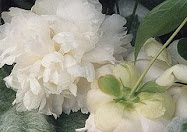


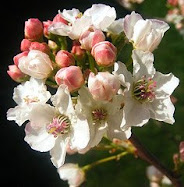
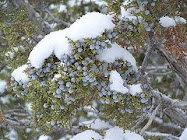

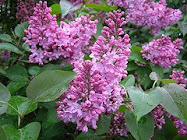
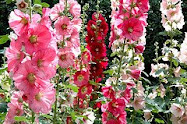
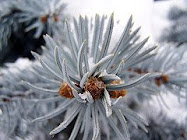
No comments:
Post a Comment